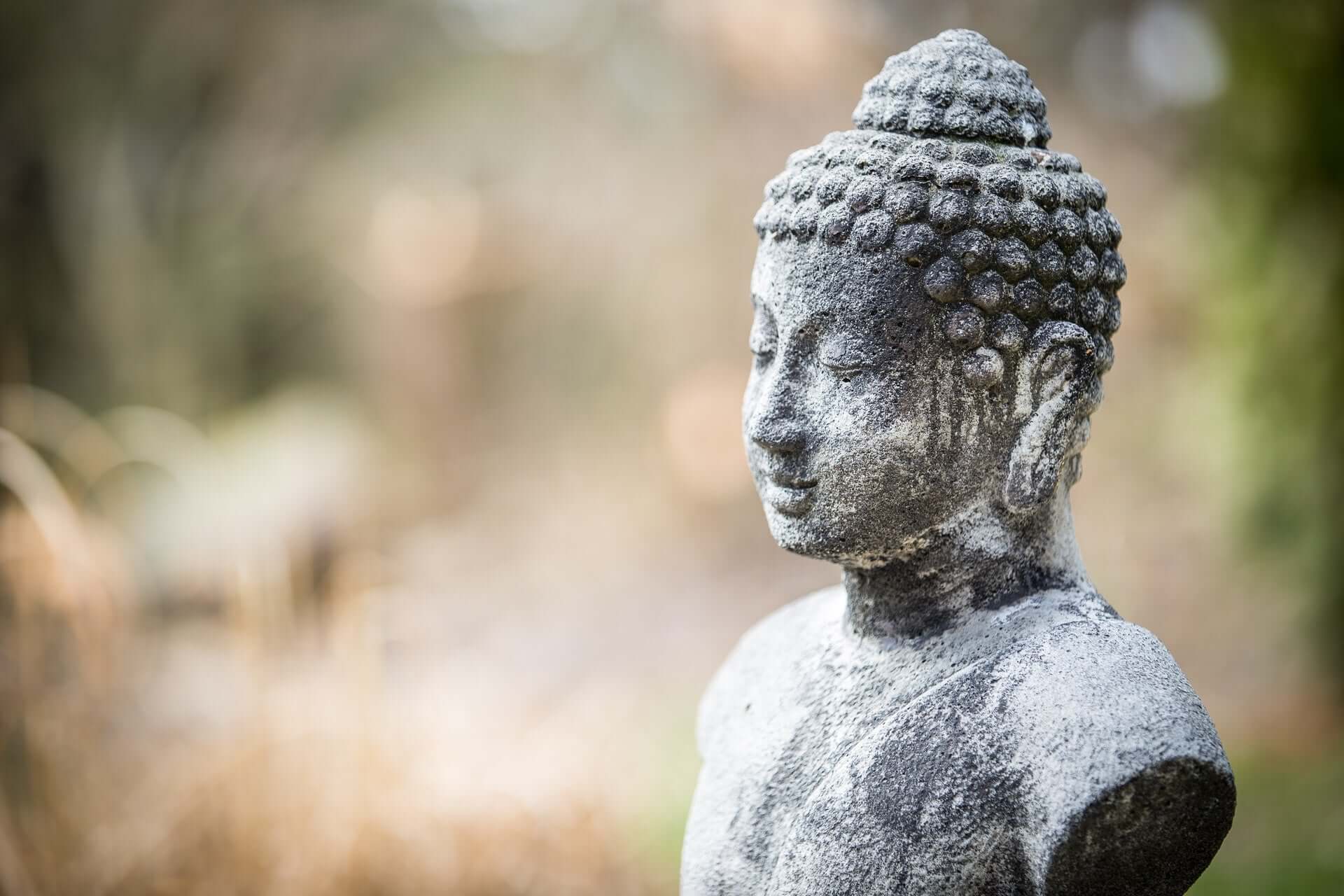
Inhaltsverzeichnis
Zen - what does that actually mean?
We've all probably come across the word "Zen" before. There are Zen gardens, Zen Buddhism, and "Zen" is also understood as a kind of state of rest. But what does the term actually mean? I did some research and was surprised...
A sign from the universe?
Recently, in my favorite bookstore, I came across a book that, once I saw it, I couldn't put down. It's quite small, and the cover features an illustration in shades of blue of a woman sitting on the shore of a lake. Mount Fuji is visible in the background. The book is titled "Zen – The Art of Simple Living"Zen – The Art of Simple Living" (German: "Zen – The Art of Simple Living"), the author's name is Shunmyo Masuno. A glance at the blurb reveals that this book aims to convey 100 practices and teachings of Zen Buddhism that can be easily applied to everyday life and are intended to lead to greater contentment. After briefly leafing through the booklet and being completely captivated by the beautiful little illustrations inside, I knew: "I have to get this!"
Why am I telling you this?
When reading the preface, I realized that although I have a rough idea of what Zen is about, I have never seriously I've been thinking about what Zen actually means. I was hooked and did a bit of research. Because I think I'm certainly not alone in this, and it would be a shame not to record the knowledge I've gained, I'm sharing it with you here in this post.

What does “Zen” stand for?
Zen comes from the Sanskrit word Dhyana back, which means “State of meditative contemplationIt first spread in the 5th century as a branch of Buddhism in China, so it already has a very long tradition. Korean and Vietnamese interpretations soon developed. However, what we primarily understand as Zen today goes back to the Japanese form of Zen. This developed later, in the 12th century. So much for the conceptual and historical background of the word.
We can therefore conclude that Zen is not a unified "teaching," but exists in various versions. While Zen has roots in Buddhism, it is not to be understood as a religious movement and can therefore be experienced by anyone who engages with it.
It is often said that there is no real teaching behind Zen. Zen also does not contain any special wisdom. Quite the opposite, in essence, Zen offers "nothing". What does that mean? Does Zen actually have no message at all?
Yes, of course! Because this concept fits very well with our current understanding of meditation, the “Do nothing”.
Which brings us to a central point of Zen:
How is Zen practiced?
The Sitting meditation, here "ZazenZazen is one of the central practices in Zen. The Japanese term "zazen" means something like "sitting in contemplation." The typical sitting posture is: crossed legs, an upright back, half-open eyes, and thumbs gently touching in the lap. It's exactly as we know it from decorative Buddha statues.But here too, of course, there are some variations of this position.
Sitting meditation is not about achieving enlightenment (although this can also happen in Zen). Concentration on the present without pursuing any thoughts. The mind should find peace. In Zen, it is believed that overcoming "ego-consciousness" leads back to our original nature and thus to our "normal state." Sitting meditation is therefore said to have a positive effect on mind and body.
But also the concentration on the Everyday plays a major role in Zen practice. The mind is meant to calm not only during meditation, but also in everyday life, the "flood of thoughts" is meant to be contained by completely concentrating on the activities one is performing at any given moment.
What is Zen about, what is its goal?
Zen is said to be a new perspective on oneself, everyday life, and the world. This is achieved through being present in the present moment. The sometimes sudden experience of universal unity is occasionally referred to as "enlightenment" or "becoming a Buddha," even though this is not the goal of Zen.
Basically, it is about going beyond ordinary, categorizing thinking, into “non-thinking”.
Masuno writes in the book mentioned at the beginning (loosely translated from English): "Zen provides suggestions and guidance on habits and ideas surrounding a happy life." Furthermore, four principles play a central role in Zen: Spiritual awakening is conveyed outside of a teaching, it cannot be conveyed through words or texts, Zen addresses the human spirit directly, and Zen enables one to return to one's own, original nature. Put more simply: It is not about adhering to scriptures or the learned word, but rather about meeting oneself in the here and now, just as one isAccording to Masuno, the “Zen style” consists in living an incredibly simple life, free from meaningless things, unnecessary worries and without the influence of other people’s values: “The answers you seek are within”. 😌
If you would like to learn more about mindfulness, healthy eating, sustainability or family and pregnancy, Check out more exciting blog articles on these topics here.

Photo by Faye Cornish on Unsplash



























3 Comments
und ich las: Zen wanderte – blieb stehen, nahm eine Sandale von seinem Fuß, legte sie auf seinen Kopf und wanderte weiter seines Weges.
H.K.-U. de Stelter z.H.
Ein interessanter Beitrag mit leicht verständlicher Erklärung, sehr anschaulich gemacht!
Das Seiende ist in unserem Geist; Interesse heißt: außerhalb des Seins – inter Esse.
Jörg Hildebrandt
Spannend! Vielen Dank :)
Ma
Leave a comment
This site is protected by hCaptcha and the hCaptcha Privacy Policy and Terms of Service apply.